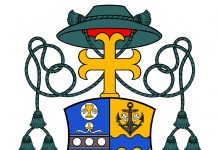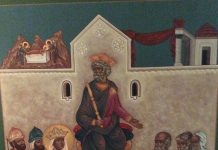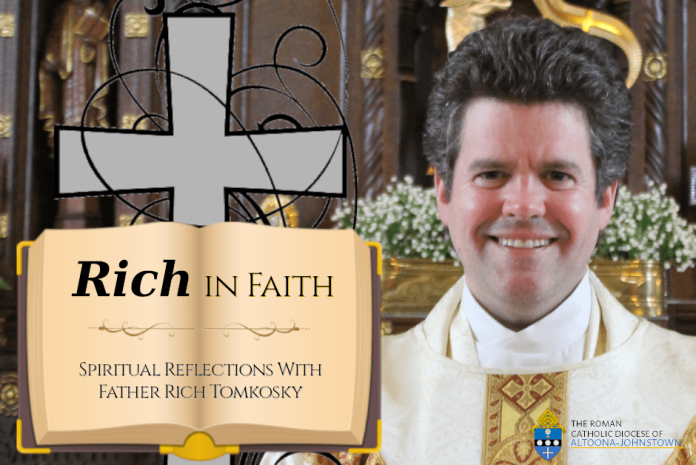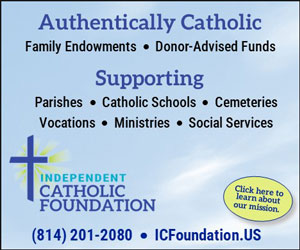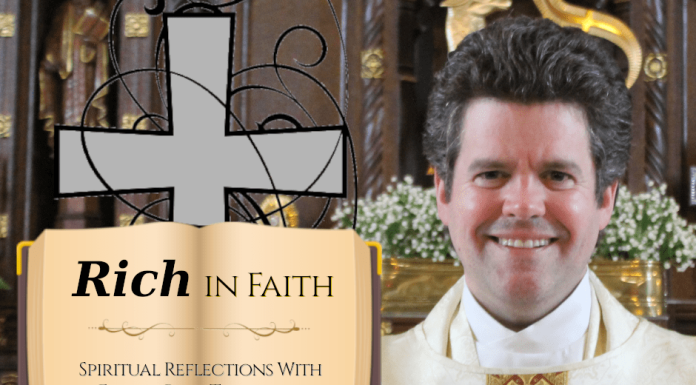By Father Rich Tomkosky
Many of the saints have pointed out that in God’s holy Providence, the apostle Thomas not being present at the initial appearances of the Risen Lord Jesus, was a grace to help all of Jesus’ followers going forward because so many would have doubts and difficulties at different times in relation to the Lord and the holy Catholic faith. What does this all mean, and how does the Lord try to reach us through our reason, faith and turning away from sin to embrace the narrow path that leads to holiness and Heaven?
Reason is the human mind’s ability to use our five senses to gather information to draw distinctions and cause and effect dynamics and conclusions, which is a good thing to help us understand our world and hopefully grow in our knowledge and love for what is real and truthful. The problem comes in when we rely exclusively on our reason to the detriment of the faith and the supernatural realities that go beyond our senses and the rational part of our intellect. This is the error Thomas fell into as he would not believe without seeing and touching and feeling the Lord’s wounds in His body from His Passion and Death. We see this a lot in our world today where people only live by their senses and emotions and sometimes their reason, but do not allow room for the deeper knowledge that comes from the divine gift of faith. This is the error of rationalism, and, sadly, far too many of our young people fall into this error when they go off to college and are taught by humanly smart but non-faithful professors who draw others into their rationalistic errors, which is why we must work daily to grow in our knowledge of our Catholic faith to be able to “give a reason for our hope in God” when we are challenged by non-believers, as Saint Peter points out in 1 Peter 3:15.
Faith is the infused supernatural virtue given in our Baptism and renewed and strengthened in our Confirmation that enables us to believe what God has revealed to us through the Bible and the handed down Catholic faith even when it goes beyond our human reasoning ability. Thomas was lacking in this virtue when he doubted the Lord’s Bodily Resurrection. Jesus in His mercy and kindness gave Thomas a new chance to grow when He re-appeared and gave Thomas the opportunity to affirm his faith in Jesus’ Resurrection, and then said for all of us who will come later, “Blessed are those who have not seen, but have believed.” But even then, we need to be on guard though, because there is a more subtle error called fideism which those who have faith can fall into, which is believing everything by faith instead of using one’s reason as well and/or erroneously thinking faith and reason are in opposition by nature, when they are not. God expects us to use our reasoning ability in everyday life, with the human tasks at hand, with work, with the fields of medicine and technology, and with the hard sciences of biology and chemistry and astronomy and so on. As Christian believers we don’t ignore the truths of the natural world because we have the supernatural gift of faith, but rather use our faith to guide our rational endeavors. The primary focus of our gift of faith through is to grow in our sacred understanding of the realm of God and the eternal truths given to us by God’s Revelation in Sacred Scripture and Tradition, the revealed truths necessary for man’s salvation. Both faith and reason help us to fulfill our destiny to grow in holiness which is to become more a reflection of Jesus in all that we say, and think, and do.
Sin, or doing our own will vs. God’s will in areas big and small, is what clouds or darkens both our reason and our faith to keep us from becoming the holy person God wants us to be. It is not an accident that this is the Gospel passage in which Jesus both gives Thomas a chance to undo his doubts, but also where Jesus established the Sacrament of Confession when Jesus breathes the Holy Spirit on the apostles, the first bishops and priests of the Church, and says “whose sins you forgive are forgiven, and whose sins you retain are retained.” This is the Sacrament where we receive Divine forgiveness and healing from our sins; and there is no other way or place in the world that can give us these special graces. Let’s always ask the Lord to give us the humility and courage to receive the Sacrament of Confession on regular basis. And to get back to it, if we’ve been away a while. Take advantage, too, of all the special graces of Divine Mercy Sunday and the daily praying of the Chaplet of Divine Mercy. God bless you.
Father Rich Tomkosky is the Pastor of Saint Thomas the Apostle Parish in Bedford and the Pastor of Seven Dolors of the Blessed Virgin Mary Parish in Beans Cove.


